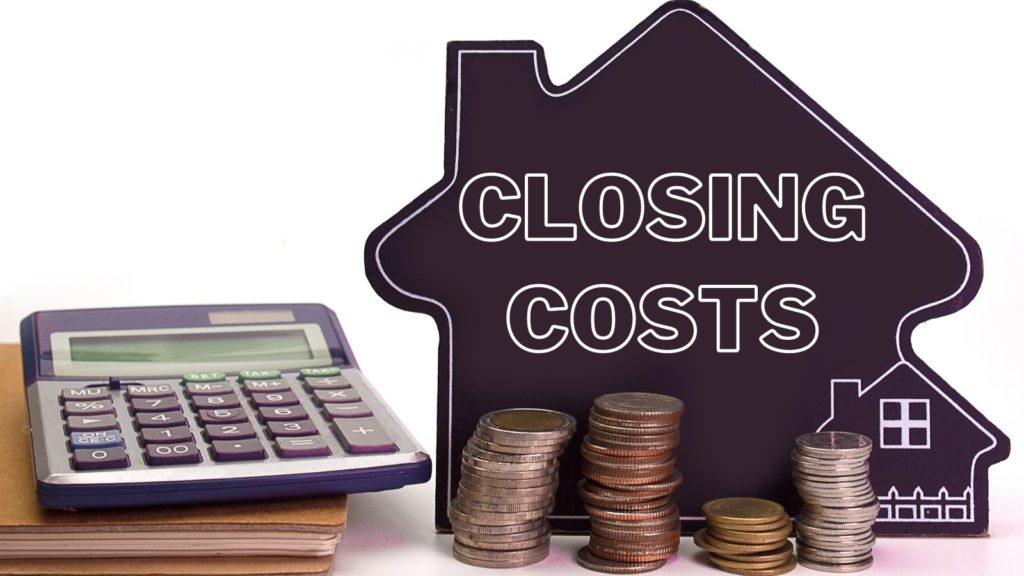As a first-time homebuyer, it’s important to be aware of all the expenses included in your purchase. From the down payment to moving costs, there are many expenses beyond the sale price of the house. One of the biggest expenses is closing costs, which can add thousands of dollars to your total bill. Here’s what you need to know.

What Are Buyer Closing Costs? A Complete Guide for New York Homebuyers
When purchasing a home in New York State, many buyers focus on the purchase price but forget about closing costs—the additional fees due at closing that can add up to thousands of dollars. Understanding these costs upfront helps you budget properly and avoid surprises on closing day.
How Much Are Buyer Closing Costs in NY?
In New York State, buyer closing costs typically range from 2% to 5% of the purchase price. In New York City, closing costs are often higher, especially for co-ops and condos, due to additional taxes and fees.

Breakdown of Buyer Closing Costs in New York
Here’s a detailed look at what you can expect to pay:
1️⃣ Mortgage-Related Fees
If you’re financing your home, expect costs related to your loan:
✅ Loan Origination Fee – 0.5%–1% of the loan amount
✅ Appraisal Fee – $500–$1,000 (required by lenders)
✅ Credit Report Fee – $25–$50
✅ Bank Attorney Fee – $750–$1,500
✅ Prepaid Interest – Covers interest from closing date to the start of your mortgage
2️⃣ Title & Insurance Fees
These protect you from ownership disputes and ensure a clean title:
✅ Title Insurance – 0.5% of the home price
✅ Title Search & Recording Fees – $300–$600
✅ Homeowners Insurance – Required by lenders, varies based on property value
3️⃣ Government & Tax-Related Fees
✅ Mortgage Recording Tax (if applicable) – 1.8%–2.8% of the loan amount (only applies to houses & condos, not co-ops)
✅ Mansion Tax – 1% of the purchase price for properties over $1 million
✅ Property Tax Escrow – 2 to 6 months of taxes prepaid at closing
When are Closing Costs Due?
Most closing costs are due on closing day, which is usually around 30 days after you sign the initial contract.
How Much are Closing Costs for Homebuyers?
Closing costs will vary from one lender to another and from state to state, but, on average, you can expect to pay between two and six percent of the sales price of the home you buy.
This means that if you’re buying a $300,000 house, you could expect to pay between $6,000 and $18,000 in closing costs.
Can Closing Costs be Financed in Your Home Loan?
As a general rule, homebuyers pay cash-out-of-pocket for their closing costs. However, there are exceptions to every rule, and there are lenders who may be willing to encompass your closing costs in your home mortgage loan. Just keep in mind that if you choose to finance your closing costs, you’ll be paying thousands more dollars over time since you’ll be paying interest on that money.
Your Lender Determines Your Closing Costs
The lender is the one who determines your closing costs. When you apply for a home loan, the lender will provide you with a list of estimated closing costs. Then, three days before you close on the house, you’ll receive a statement of actual closing costs.
A majority of costs involved are loan application fees, loan processing fees, and other charges associated with your bank.
Compare lenders. Look at estimates from at least three lenders so you can gauge the average and, with comparables, potentially negotiate lower rates with the lender of your choice.
Negotiating Closing Costs with the Seller
Many homebuyers try to negotiate closing costs with the seller. This typically involves an incentive in which the seller will pay a certain amount of your closing costs or reduce your sales price by an equal amount. This is most likely to take place in a buyers’ market when sellers are more determined and are willing to make concessions.
What are Closing Costs
Closing costs will vary, but here are some of the costs you may discover in your journey to homeownership.
Credit check fee: The lender will run your credit report to measure your credit score, and you’ll pay that expense.
Application fee: Applying for a home loan can include charges such as an application fee and document preparation fee.
Loan processing fee: The lender will charge a loan processing fee to cover the administrative costs involved with processing your loan.
Underwriting fee: The underwriter reviews your application and determines whether you’re eligible for a certain rate and type of mortgage. They may also determine that you pose too high a risk and be denied their product altogether.
Escrow: Escrow is the process that ensures all of your payments and disbursements are made on time during the transaction. You may be charged an escrow fee for this service.
Attorney fees: In some states, real estate attorneys are mandatory, and you’re responsible for that payment.
Title check and transfer: In order to transfer the title from seller to buyer, a title search must be done. The cost of that research is included in your closing costs.
Title insurance or owner’s title insurance: This policy protects you from financial loss if there’s a legal claim on the property. The lender requires it and will include this charge as part of your closing costs.
Lender’s title insurance: Your lender will purchase a policy to protect them against any losses due to defects in the title or deed of your house, which protects you as well from being sued for those claims.
Appraisal fee: Your bank will order an appraisal on the house to determine its market value so they can ensure they don’t lend more than it’s worth.
Inspection fee: Your bank will also order an inspection on the house to make sure it’s in good condition to get a valid appraisal. You’ll pay this fee whether they find problems or not.
Property taxes: Annual property taxes are the responsibility of the homeowner. The bank collects these in advance, holds them in an escrow account, and then pays them on your behalf when they’re due.
Homeowners Insurance: You’ll be required to purchase a homeowners insurance policy. Based on location, you may also have to acquire flood or fire insurance too.
Points: A point is equal to one percent of the loan amount. You may opt to purchase points as a way to reduce your interest rate, which reduces the cost of your monthly mortgage payments over time.
Conclusion
When you buy a house, you not only have to pay a down payment, but you also have to pay closing costs, which add up to thousands of dollars. In some cases, you can roll your closing costs into your home mortgage loan, but you’ll pay more, in the long run, considering interest. Compare lenders to get the best rates on closing costs and consider trying to negotiate closing costs with the seller to ease some of the burdens.
Talk with your professional real estate agent today to learn more about closing costs when buying your first home. Your agent may also be able to refer you to a lender whose closing costs might be lower.
